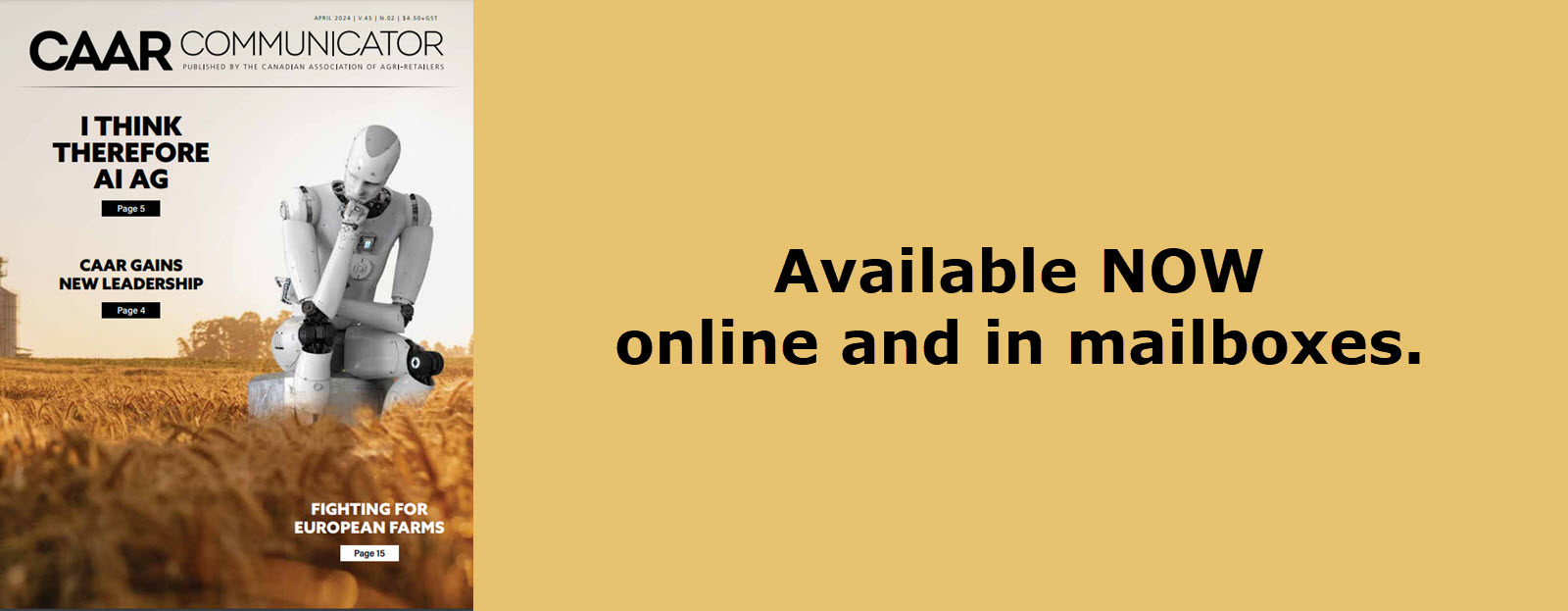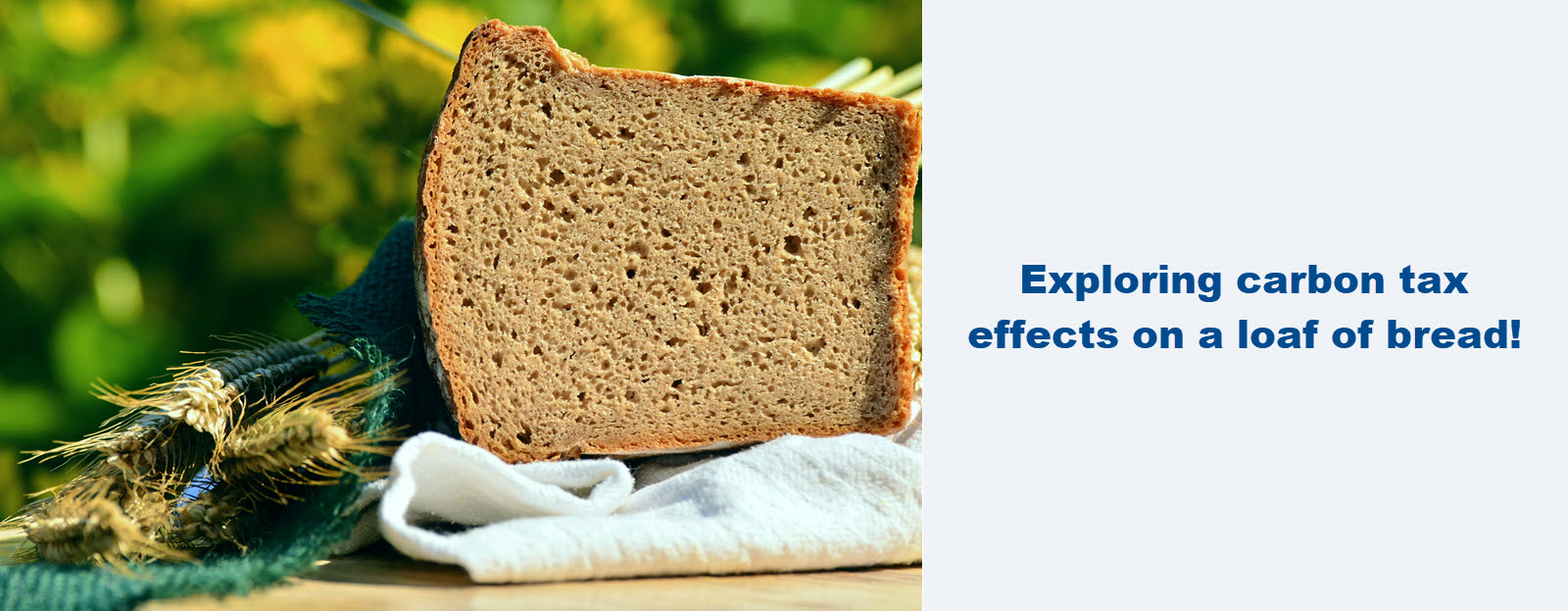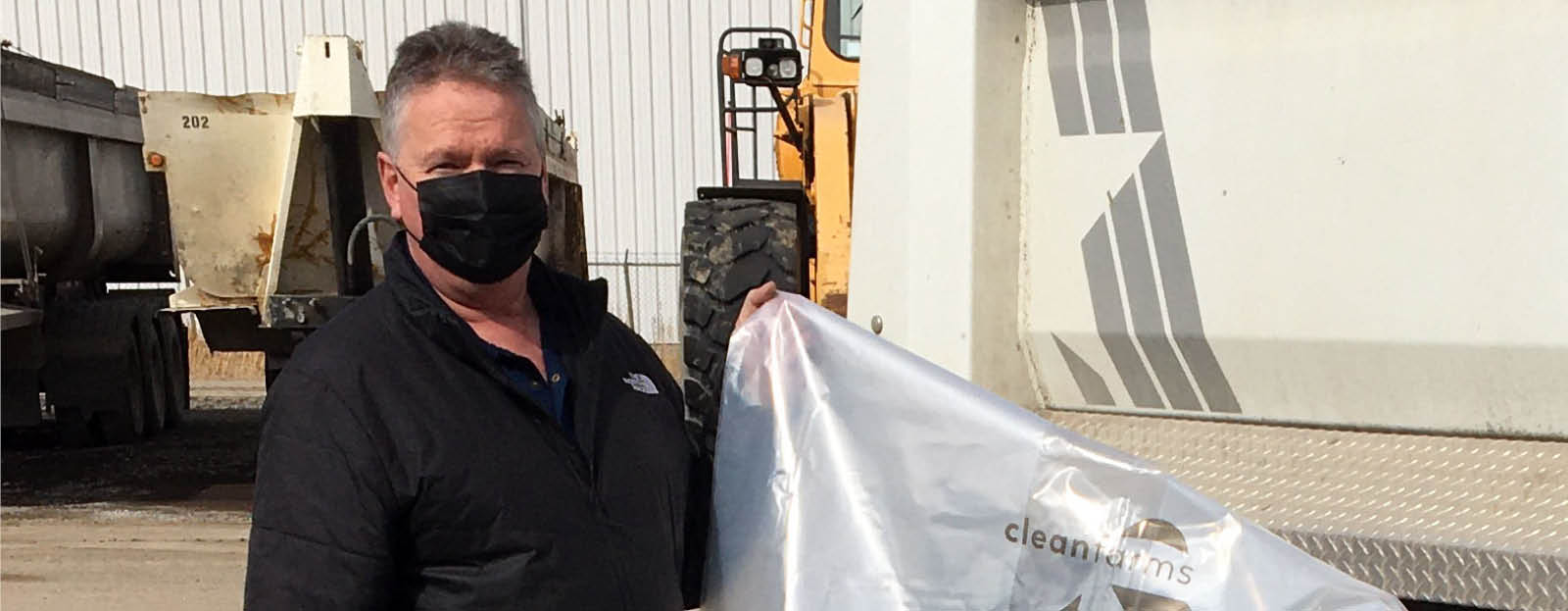Cleanfarms’ empty pesticide & fertilizer container recycling program undergoes a big change in Alberta and Manitoba.
The purpose is to encourage 100 percent recycling of <23L pesticide and fertilizer containers.
Beginning in 2022, Cleanfarms Inc. will be working with retailers in the provinces of Alberta and Manitoba to transition the collection of <23L empty pesticide and fertilizer containers to a retail-based collection model.
Cleanfarms is a non-profit environmental stewardship organization working to ensure Canadian farmers can actively contribute to a healthy environment and a sustainable future. Among its programs, Cleanfarms runs a collection program for <23L pesticide and fertilizer containers for developers, manufacturers, distributors and retailers of pest control products and fertilizers in Canada.
Excluding Manitoba and Alberta where these containers have been collected at municipal collection sites since 1989, the rest of the provinces have been collecting these containers at ag-retail locations.
Agri-retailers in Alberta and Manitoba have been involved in this decision-making process and each supports the provincial transition.
Manitoba Agri-Retailers
The decision to move to a retail-based collection model was arrived at in Manitoba after the company’s five-year review of its recycling programs in conjunction with renewal of its Industry Stewardship Program Plan.
Cleanfarms recommended the standardization of the <23L pesticide and fertilizer container program to collect the jugs at agri-retail locations across Canada.
As such, beginning Spring of 2022 and running through the initial three-year window through to 2024, agri-retailers should allow for the collection of these <23L containers whereby Cleanfarms’ contractors will pick up for proper disposal.
Based upon historical volumes, Cleanfarms said that municipal collection sites in Manitoba will be phased out over a three-year period.
Zero volume sites will close prior to Spring 2022, while low volume sites of less than 5,000 lbs/year north of Riding Mountain National Park will shutter at the end of the calendar year.
The medium sites of 5,000 to 10,000 lbs/year will all close by the end of 2023, and high-volume sites consisting of greater than 10,000 lbs/year will close by the end of 2024.
If you have not yet already been advised, Cleanfarms has indicated it will soon reach out to all Manitoba retail sites to advise them of any closures of the zero or low-volume sites.
It is expected that by December 31, 2024, all municipal collection sites will have become fully decommissioned, and that as of January 1, 2025, agri-retailers in Manitoba will be the sole point of drop-off for their customers’ empty <23L fertilizer and pesticide containers—with exceptions, detailed below.
When a large-enough volume of empty containers has been accumulated by the agri-retailer—that volume amount is self-determined but must be for 10 bags or more—a request for pickup can be made to Cleanfarms.
Although the onus for pickup of the containers will be placed on the agri-retailer, Cleanfarms said that for larger-volume customers of a fertilizer and/or pesticide product—aerial inputs or Hutterite colonies or simply really large farms—it will also offer a direct pick-up option.
For customers who deal in volumes greater than 1,500 containers, agri-retailers are asked to have the client call Cleanfarms directly to arrange pick up.
To aid in this transition and to educate your customers, Cleanfarms will distribute to agri-retailer sites and currently in-use disposal sites a range of communications materials, including outdoor signage, posters, and brochures.
Alberta Agri-Retailers
In 2021, the Alberta Agricultural Services Board asked Cleanfarms and the Alberta Environment and Parks to arrange for the transition of <23L fertilizer and pesticide containers away from municipal jurisdictions.
Alberta’s agri-retailers were involved in this decision-making process to have the containers picked up at its premises.
As with Manitoba, Alberta will transition in 2022 through 2024 from a municipal collection model to a retail-based collection model.
Beginning Spring of 2022, agri-retailers in the province will allow for the collection of the <23L pesticide and fertilizer containers, with Cleanfarms’ contractors picking up the containers from both municipalities and the agri-retailer as the program transitions.
All zero volume sites will close before Spring of 2022. Low volume sites of less than 5,000 lbs/year in the Peace region will close by the end of 2022.
The medium volume sites of 5,000 to 10,000 lbs per year will close by the end of 2023, and high volume sites of those greater than 10,000 lbs annually will completely close by the end of 2024.
For transparency, Cleanfarms said it would contact all agri-retail facilities within proximity to advise them of closures of the sites.
All of the municipal container collection stations will be fully decommissioned by December 31, 2024, and as of January 1, 2025, Alberta agri-retailers will assume responsibility as a centralized drop-off container location for its clients.
Like Manitoba, Cleanfarms will also offer direct pick-up of containers from the largest users of these containers, such as those providing aerial inputs or Hutterite colonies or large farms.
Cleanfarms asks all agri-retailers who deal with customers of greater than 1,500 containers, that the customer should contact Cleanfarms directly to arrange pick up.
Again, Cleanfarms will provide communications materials such as outdoor signage, posters, and brochures to sites as applicable.
The Process
The way the collection service works is identical for Alberta and Manitoba.
Manitoba agri-retailers must order collection bags from Cleanfarms’ online (https://collection.cleanfarms.ca/#/login)
For Alberta retailers—Cargill, Federated Coop, Nutrien Ag Solutions, UFA, Richardson, and the independents—Cleanfarms offers specific bag ordering details. Please see the table located at: https://cleanfarms.ca/ag-recycling-bags/
Please note that the collection bags are free of charge to the agri-retailer and should remain so for your customers. Rolls of the bags will be delivered to each agri-retailer as of March 2022.
Each bag holds 45 <23L jugs. Each roll contains 40 bags. Bags are 40”x34”x70” in size and are 3.75 mil thick. These bags are made with at least 25 percent recycled content from household recycling programs—though not necessarily from your province.
Provision of the bags to your client should be done at the time of product purchase. If purchase has occurred prior to the onset of this program, agri-retailers are encouraged to inform customers of this program and to arrange for pickup/delivery of said collection bags.
Obviously, these bags—each capable of holding approximately 45 <23L containers—provide the user with an easy way to collect and transport the empty jugs from farm to agri-retail site.
This does imply, however, that agri-retailers must ensure for provision of a storage area for the empty containers, easily accessible by both the agri-retailer, its customers and for Cleanfarms’ contractors when pick up is arranged.
Note that these same collection bags are used for seed, pesticide/fertilizer, and inoculant (SPI) bag collection program—but each must be previously separately bagged whether by the customer or the agri-retailer, as the materials are sent to different recycling/safe disposal facilities.
Growers/users of the <23L containers should be informed they must first:
• Remove and discard any attached paper booklets;
• Rinse containers using a chemical handler, triple rinsing, or pressure rinsing technique;
• Place rinsed containers in a collection bag and secure close;
• Do NOT place any other materials in the collection bag—ONLY fertilizer and pesticide jugs;
• For seed treatment containers, ensure caps are securely in place, and bag separately from non-seed treatment containers.
Agri-retailers should only accept properly prepared collection bags.
After accumulating a large-enough collection of bags—Cleanfarms is interested in providing a small carbon footprint, too—agri-retailers should use the online pickup request system at https://collection.cleanfarms.ca/#/login.
Requests to pick up 10+ collection bags will be picked up within 10 business days.
Cleanfarms said it will send messaging to agri-retailers about this pilot collection program for seed, pesticide/fertilizer, and inoculant bags—and if you have not received any communication by early April or have any questions or concerns, please contact Cori Crawford via email at This email address is being protected from spambots. You need JavaScript enabled to view it. or call 1-877-622-4460.
Company information is available at https://cleanfarms.ca/.
Related Articles
- Coal as cow feed? Researchers turn coal into an edible protein as part of cattle feed—is it a diamond in the rough? By Andrew Joseph, Editor Centuries before coal was used to heat homes, be they castles or peasant huts, it was use...
- The world of seed technology: things to know for 2024 With science changing along with the seasons, we look at the world of seed technology, offering a forecast. By Marc Zienkiewicz, Senior Editor of Seed World Group Right now exciting things are on the horizon for ...
- The world is not enough Wanting to do their part in reducing global GHG emissions, Canadian farmers still can’t catch a break from federal tax fees. But what’s going on around the world? By Andrew Joseph, Editor While there are always ...
- February 2024 issue of CAAR Communicator now available online The February issue of CAAR Communicator "I Love Ag" should be arriving in your mailbox. The feature article looks at brand marketing and standing out from the competition. The February issue of CAAR Communica...
- What’s New in the Canadian Ag Labour Market? A look at the country’s labour forecast through 2030. Andrew Joseph, Editor The Canadian Agricultural Human Resource Council (CAHRC) has released an executive report entitled Sowing Seeds of Change. It’s an agric...
 How to resolve AdBlock issue?
How to resolve AdBlock issue? 




Join the discussion...
You must be logged in as a CAAR member to comment.
Report
My comments